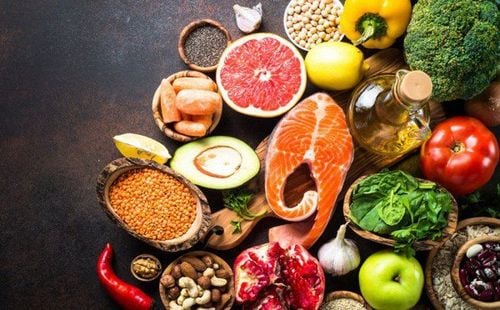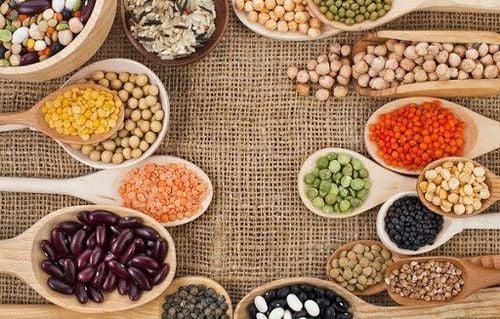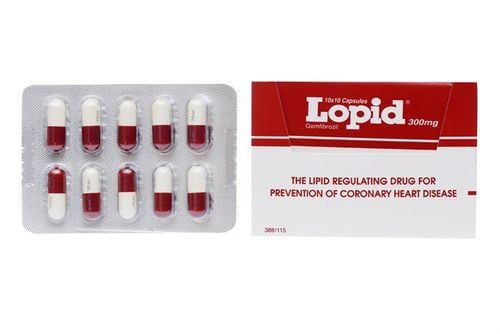This is an automatically translated article.
Beliefs about the relationship between food and mood are being answered by people. The ultimate goal is to find the ingredients in food that affect emotions, thereby producing foods that improve mood better.
1. Does food affect mood?
Foods affect people's mood in different ways. Most foods affect mood through the emotions people associate with it. Looking at the type of food, they may associate feeling happy, sad, appreciative (chocolate), diet or minimalist menu, etc. Only a handful of foods have been scientifically proven to affect mood. In addition, there are foods that have special religious, economic and cultural significance, which also affect our mood or how we feel when we eat them.
The relationship between food and mood is scientifically proven. Research in 2005 in the International Journal of Obesity, which found an association between obesity, depression and diet. Additionally, a 2011 study in the American Journal of Clinical Nutrition found that women who ate more foods rich in vitamin D had a lower risk of depression than women who had less vitamin D in their diets. .

Thực phẩm có mối quan hệ đặc biệt với tâm trạng con người
2. Certain nutrients and their effect on mood
2.1 Vitamins and minerals
A lack of vitamins and minerals affects energy, mood and brain function. The table below provides information on specific vitamins, how much they affect mood, and what foods to eat to make up for a deficiency. Mood-boosting foods are added when people eat the wrong way, needing to adjust to a healthier diet.
Vitamin and mineral supplements from natural foods are the safest. To get enough, you should maintain a diet rich in fruits and vegetables. Vitamin and mineral supplements are extremely necessary for some subjects such as folic acid for all pregnant women; iron supplements for people with anemia; vitamin D for everyone in winter, pregnant and lactating women, the elderly and people with dark skin tones.
2.2 Carbohydrates (Glucose)
The body's ability to focus depends on the amount of glucose supplied to the brain. In addition, glucose is also important for muscles and maintaining body temperature.
When there is not enough glucose, the body will feel tired, exhausted and reduce the ability to think. This happens when the body does not get enough carbohydrate foods , which is common in people with diabetes , people with intense exercise regimes , dieters or erratic diets .
Therefore, to provide enough glucose for the body, you need to eat 3 meals a day, in the meal there must be foods containing carbohydrates. It can be fruits, vegetables, cereals, bread, rice, potatoes, sugar and lactose in milk. Or healthier carbohydrate sources like whole grains, vegetables, fruits, legumes, and low-fat dairy. In addition to glucose, these foods also provide other nutrients such as calcium and B vitamins.
However, you should only add glucose in moderation, because when blood sugar is in the normal range, no matter how much extra glucose you provide, it will not help increase concentration, or other benefits of glucose.

Ngũ cốc có chứa nhiều glucose
2.3 Comfort diet
Serotonin is a chemical in the brain that improves mood and emotions. It is made in part by tryptophan from a tryptophan- or high-carbohydrate diet.
Studies have proven cravings for sweets can help improve mood. However, there are still no reliable studies to prove that eating lots of tryptophan or carbohydrates can actually help improve mood in humans. But not consuming adequate amounts of carbohydrates (e.g. through a high protein/fat diet) can lead to decreased vitality.
Bored people often turn to chocolate as a way to cheer themselves up. However, it may not be the substances found in chocolate that increase positive emotions but rather cultural factors.
2.4 Caffeine
Caffeine is found in coffee, cola and energy drinks. It acts as a stimulant to keep the body awake and reduce fatigue. However, there are also suggestions that caffeine only achieves a feeling of alertness when taken in the correct daily intake in people who regularly drink caffeine-containing foods.

Caffeine giúp cơ thể tỉnh táo, giảm mệt mỏi
3. Food and the risk of depression
Studies also expand on the relationship between food and depression. "There is little evidence of an increased risk of depression associated with unhealthy dietary habits," said Chocano-Bedoya, a senior epidemiologist at the University of Zurich. What specific nutritional factors are most likely to increase or decrease the risk of depression
In 2014, the Brain, Behavior, and Immunology study used the patient care literature of nurses, who studied found a link between depression and a diet high in sugar-sweetened soft drinks, refined grains and red meat.Similarly, a 2018 meta-analysis published in the European Journal of Nutrition found that High meat consumption may increase the risk of depression.However, at this point, there is no convincing evidence.
Chocano-Bedoya says: "A combination of lifestyle factors Lifestyle choices such as diet, smoking, and physical activity can increase the risk of depression.” Depression, like many other health conditions, is likely the result of depression. complex interactions between heredity and environment. Therefore, a sensible diet can be expected to protect mental health.

Trong một số trường hợp, thực phẩm có thể có mối liên hệ với bệnh trầm cảm
4. The Mediterranean Diet and Its Relationship to Human Mood
Several studies have shown that the Mediterranean diet improves mood, reduces the risk of depression. Those mood-boosting foods are in a diet that's rich in fruits, vegetables, olive oil, whole grains, and lean proteins like chicken and fish, and low in red meat and unhealthy fats.
In addition, this diet also helps lower blood pressure, which is good for diabetes and cardiovascular patients, and helps to enhance cognitive function.
The Mediterranean diet not only reduces the risk of depression, but also reduces the risk of other chronic diseases (one of the risk factors for depression).
References: health.harvard.edu, bda.uk.com













